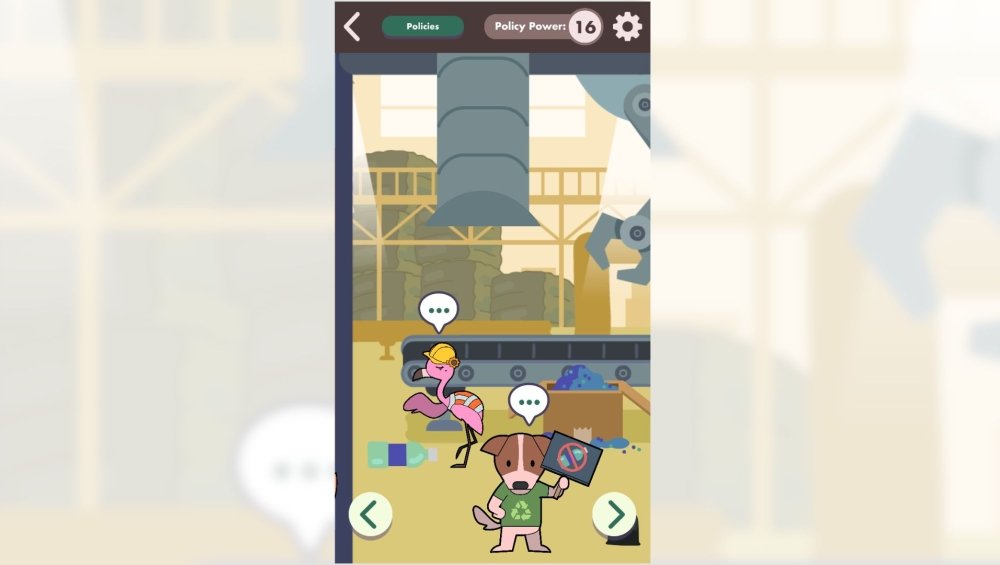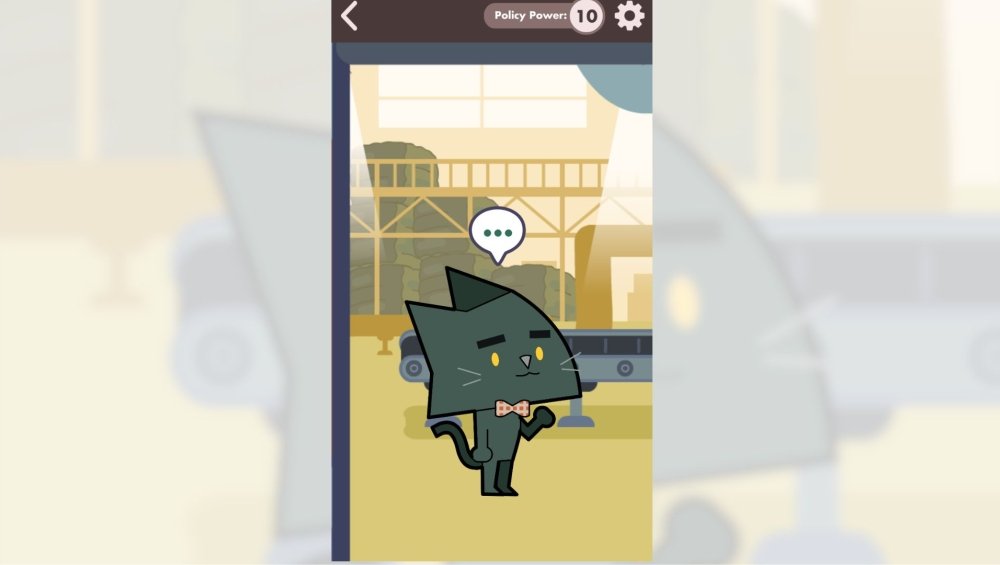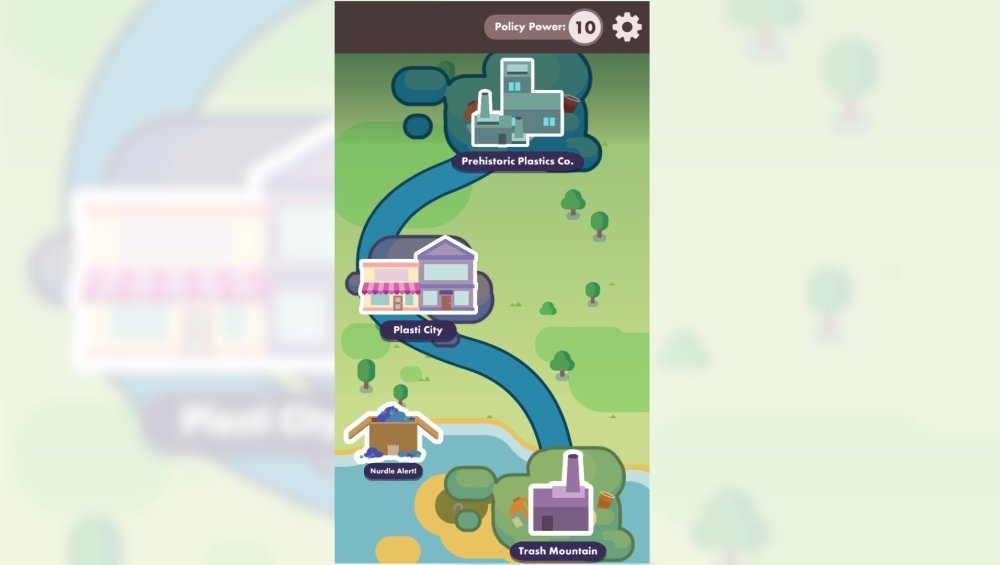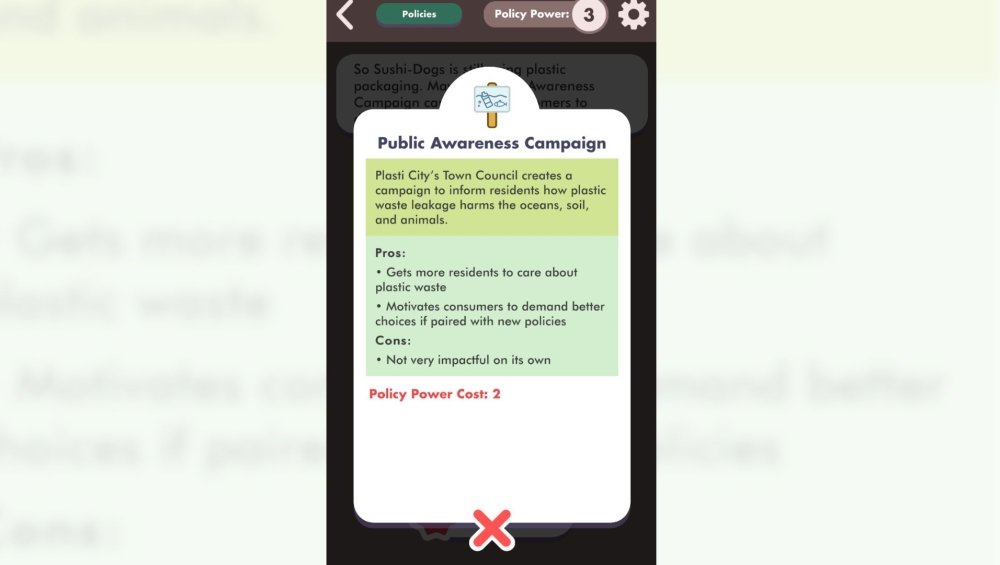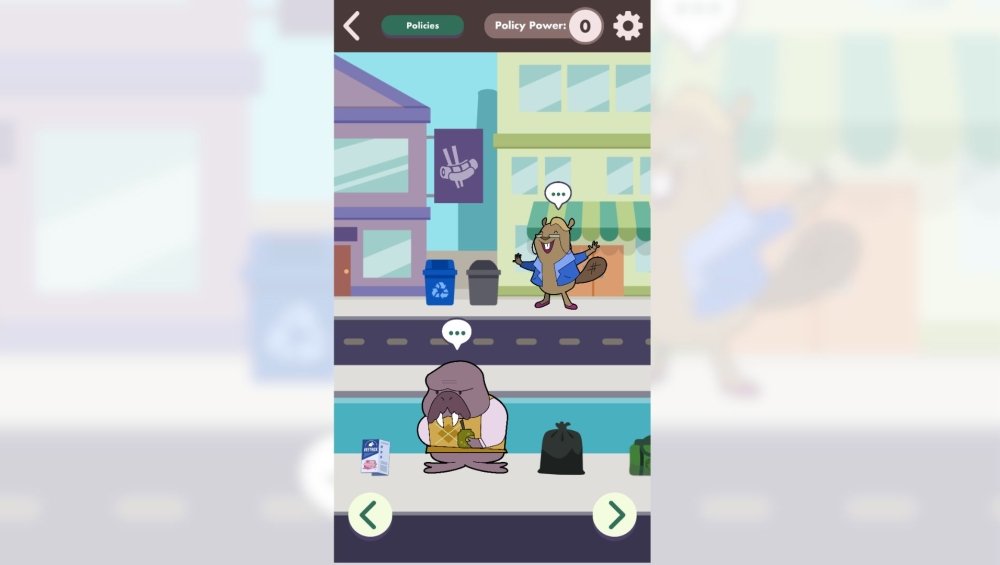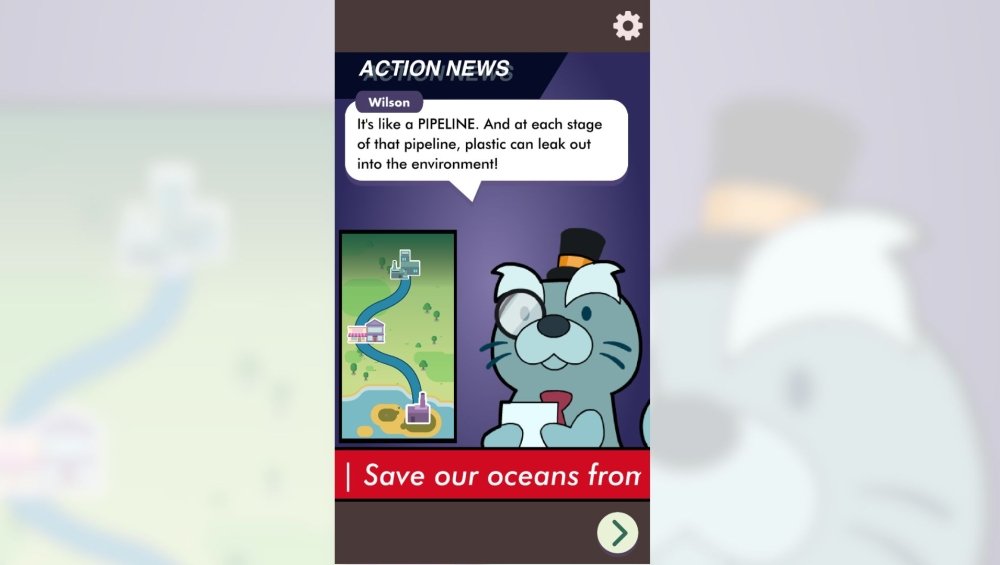The Plastic Pipeline: Press Kit
About The Plastic Pipeline
Ocean plastic pollution is a global crisis; but what can we do? The Plastic Pipeline takes players through points on the ‘lifecycle’ of a single-use plastic product to empower them to learn about policies being used to fight it. Help stem the tide of pollution and save our oceans.
The Plastic Pipeline brings awareness to single-use plastic pollution that is killing our oceans. Over 5.25 trillion pieces of plastic waste are in the ocean, making this a global emergency. Environmental policy education has often focused on teaching consumer-level behavior, like recycling or clean up. But a lot happens at the policy level in industry and government that can reduce plastic pollution. With the support of a National Geographic Society grant, the Wilson Center’s Serious Games Initiative created a game that would help young adults in the US and Southeast Asia to both learn about plastic pollution and also what can be done at the policy-level to stem the tide of plastic pollution.
The Plastic Pipeline challenges players to interview and find clues to develop out the pro’s and con’s to various policies. Players start with the area they may be most familiar with as a consumer, with topics such as plastic bag bans and more, and build out from there. Each policy was selected with the expertise and extensive research from the China Environment Forum, but instead of reading a 25 page policy brief they receive a simplified explanation–with the hope that some players, after playing the game, will want to go and learn more.
The Plastic Pipeline is intended to lower the barrier of entry into environmental policy and empower players to feel like they can do more – which is exactly what we are seeing from game tests. We did playtesting in US and Vietnamese college classrooms, where we watched students during testing enjoy the characters, compete over combating nurdles, and talk to their peers about different policy choices. In pre- and post-surveys, significant findings were that players felt they knew more about plastic pollution than before; were more likely to believe a single individual could make a difference on plastic pollution; were more interested in environmental policy; more interested in politics; and more confident in their ability to impact policy issues. We are using this data to iterate on our game design, and create an even more robust game to empower learners. More can be found here: https://plasticpipeline.wilsoncenter.org/plastic-pipeline-impact
Facts
- Tagline: Save our oceans by sleuthing out policies that can plug pollution along the plastic pipeline.
- Early access July 10, 2023;
- Full release February 9, 2024;
- Available at: https://plasticpipeline.wilsoncenter.org
- Demo’d and tested in US, Vietnam, and Indonesia;
- The research and game development was support through partial support from the National Geographic Foundation, Luce Foundation and Japan Foundation;
- The Plastic Pipeline is a joint effort of the Wilson Center’s Serious Games Initiative and China Environment Forum, led by Drs. Elizabeth M H Newbury and Jennifer Turner, respectfully.
- Developer: FableVision Studios
- Press on the Games for Change talk (FableVision blog post): https://www.fablevisionstudios.com/blog/2023/8/7/fablevision-shines-at-games-for-change
About the Wilson Center
Chartered by Congress, the Wilson Center provides nonpartisan counsel and insights on global affairs to policymakers through deep research, impartial analysis, and independent scholarship. The Wilson Center brings fresh thinking and deep expertise to the most pressing policy challenges we face today. We convene scholars to create a global dialogue of ideas that Congress, the administration, and the international policy community can act on. In 2019, the Wilson Center was named the #1 regional studies think tank in the world.
About the Serious Games Initiative
The Serious Games Initiative (SGI) was founded with one goal: to use games to engage the broader public in policy discourse. As a dominant form of media used by the average American, games are not only ubiquitous but powerful. Games have the power to make complex ideas accessible, allowing a direct experience to work through the intricacies of policy problems and learn from the experience. It is one thing to read about the potential impact of policy solutions; it is another to live it. Since its founding, SGI has been a leader in the field of serious games, serving as a nexus between key stakeholders in a wide range of sectors, from education to government, students to tech leaders, who are interested in the positive use of games. SGI not only develops games as a dynamic technology to communicate cutting edge research at the Wilson Center and beyond but create cutting-edge research to illustrate the power of games.
About the China Environment Forum
Since 1997, the China Environment Forum (CEF) has implemented projects, workshops, and exchanges that bring together U.S., Chinese, and other environmental policy experts to explore the most imperative environmental and sustainable development issues in China and to examine opportunities for business, governmental, and nongovernmental communities to collaboratively address these issues.
About FableVision Studios
FableVision Studios is a multi-media production studio that designs and develops a wide array of engaging media and interactives that inspire, teach, and move people to action.
Press Details
Ryan McKenna
(202) 691-4217
Other Contact
Sonja O’Brien
Program Coordinator, The Serious Games Initiative
Email: Sonja.O’Brien@wilsoncenter.org


